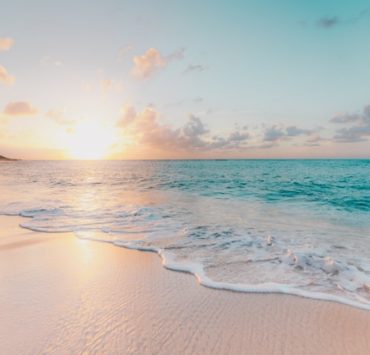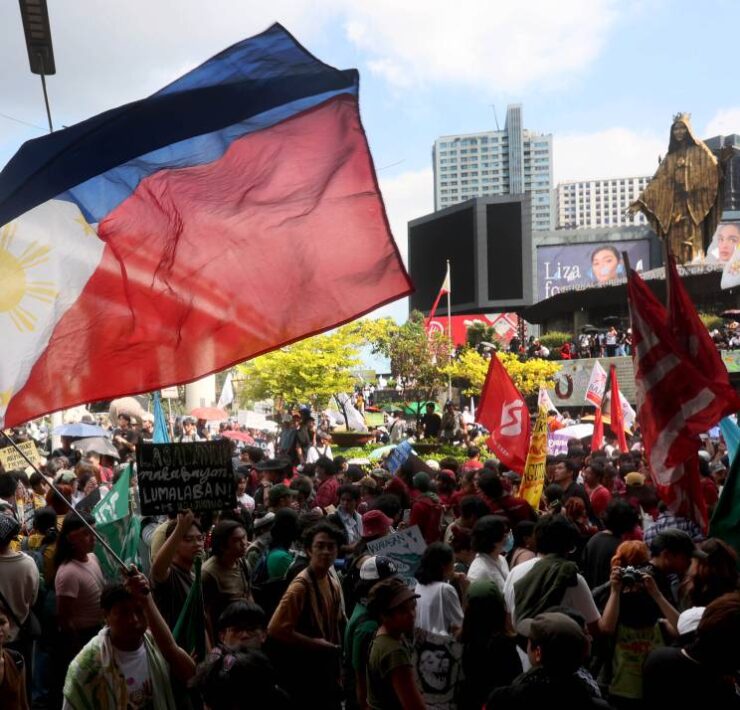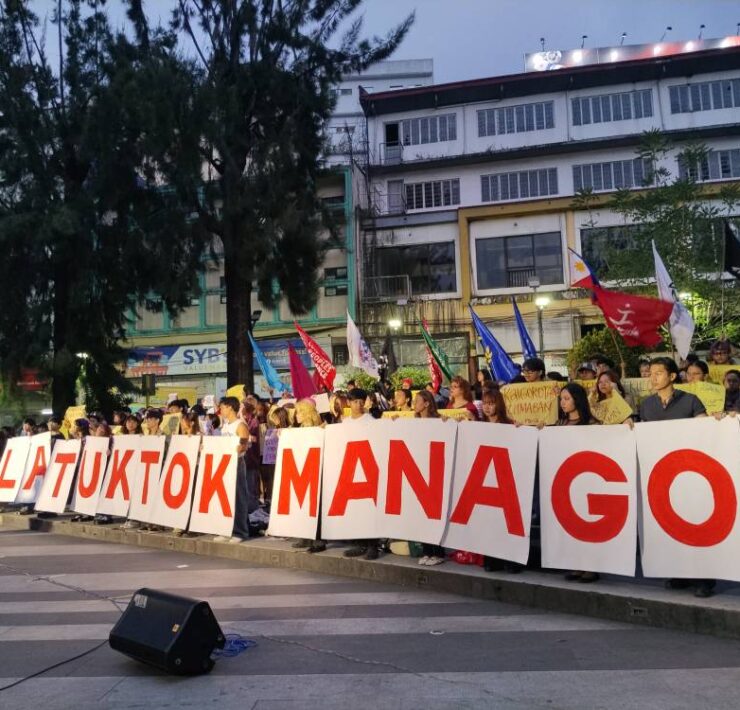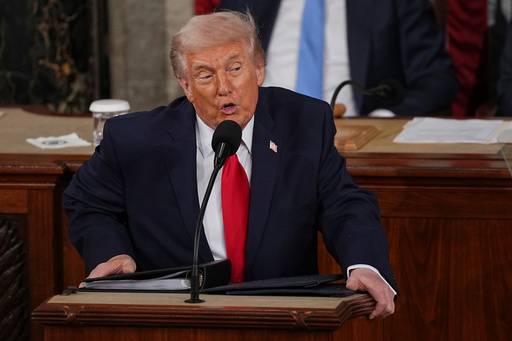G7 slams China; PH gov’t warns vs Beijing ‘puppets’
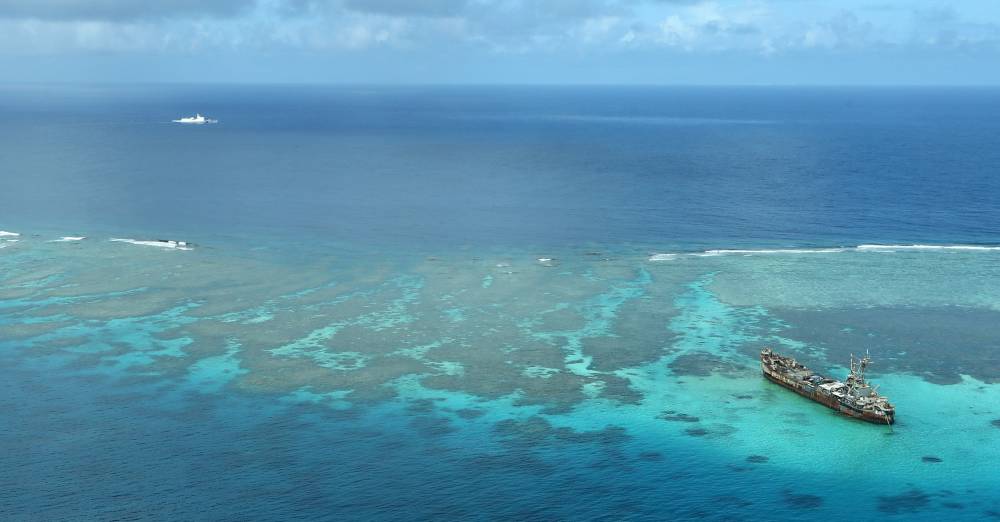
The Group of Seven (G7) has called out China’s continued “militarization, coercive and intimidation activities” in the South China Sea, saying Beijing’s expansive maritime claims to the strategic waterway have no legal basis.
In a joint statement on Friday, the world’s leading industrialized nations, excluding China and Russia, said they were “seriously concerned” about the situation in the South China Sea and expressed their “strong opposition to any unilateral attempts to change the status quo by force or coercion.”
“We continue to oppose China’s dangerous use of coast guard and maritime militia in the South China Sea and its repeated obstruction of countries’ high seas freedom of navigation, and we express serious concern about the increasing use of dangerous maneuvers and water cannons against Philippine vessels in this regard,” it said.
The G7 is an informal bloc of industrialized democracies established in 1975 consisting of the United States, Canada, France, Germany, Italy, Japan, and the United Kingdom. Its foreign ministers held their annual meeting last week in Capri, Italy.
Water cannon attacks
In March this year, seven Navy sailors were wounded in two separate water cannon attacks by China Coast Guard ships against Philippine supply boats on their way to bring provisions to the troops manning the World War II-era warship BRP Sierra Madre at Ayungin (Second Thomas) Shoal.
The ship has been serving as the military’s outpost at Ayungin since it was intentionally run aground in the shoal in 1999.
Ayungin is an underwater feature about 195 kilometers west of Palawan province, well within Manila’s 370-km exclusive economic zone (EEZ).
President Marcos has repeatedly said that the government would not surrender even an inch of Philippine territory to any foreign power as Beijing intensified its aggressive actions in the West Philippine Sea, waters within the country’s EEZ.
The G7 also reiterated its support for the July 2016 arbitral ruling that invalidated Beijing’s sweeping claims in the South China Sea.
“We reiterate that the award rendered by the arbitral tribunal on July 12, 2016, is a significant milestone, which is legally binding upon the parties to those proceedings and a useful basis for peacefully resolving disputes between the parties,” it said.
China, however, did not participate in the arbitration case in The Hague and has repeatedly refused to recognize the landmark ruling. It expanded its nine-dash-line claim in the South China Sea to a 10-dash line to include Taiwan.
In a post on X (formerly Twitter) on Friday, US Secretary of State Antony Blinken said the G7 remained “focused on promoting a free and open Indo-Pacific.”
Reimagining ties
“In today’s G7 meeting, we discussed the need for peace and stability across the Taiwan Strait, the South China Sea and the Korean Peninsula, and our efforts to strengthen and reimagine relationships in the region,” Blinken said.
Last week, Mr. Marcos, US President Joe Biden and Japan’s Prime Minister Fumio Kishida also condemned Beijing’s “dangerous and aggressive behavior” in the South China Sea in a joint statement after formalizing their trilateral grouping.
The three leaders expressed “serious concern” over China’s “repeated obstruction” of Philippine vessels in the West Philippine Sea, including the militarization of reclaimed features and “unlawful maritime claims” in the South China Sea.
‘Corrosive narratives’
In Manila on Saturday, national security officials said China’s insistence on supposed agreements with the Philippines to diffuse tension in the West Philippine Sea were intended to divide Filipinos and undermine government resolve in standing up for the country’s sovereign rights in its EEZ.
“We call on all Filipinos to stand their ground and push back against these maligned and corrosive narratives that seek to undermine the national interest,” National Security Adviser Eduardo Año said in a statement.
“We should not fall into a trap, which clearly shows and seeks to sow division in our country and weaken our resolve in asserting our sovereignty, sovereign rights and jurisdiction in the West Philippine Sea.”
The Chinese Embassy in Manila on Thursday said the Philippines and China had reached an “internal understanding” and a “new model” to deescalate tension at Ayungin, but this was “abandoned” by the Marcos administration in February 2023 after just seven months.
‘Status quo’ deal
Last week, Beijing and former President Rodrigo Duterte confirmed that they had a “gentleman’s agreement” to keep the “status quo” in the West Philippine Sea, with Duterte consenting to China’s demands not to repair or reinforce the crumbling Sierra Madre.
Mr. Marcos said he was “horrified” over such an agreement as it compromised Philippine sovereignty and sovereign rights. He demanded that his predecessor and former administration officials disclose all the details of the “secret agreement.”
Even if it’s true
Later, he said that if the Duterte-China agreement really existed, he was rescinding it, in the same way that he rescinded a supposed earlier agreement claimed by Beijing that Manila would remove the Sierra Madre from Ayungin, which it said belonged to China.
Up to this time, no written document on the “gentleman’s agreement” or the removal of the Sierra Madre has been presented by China.
Año said that even if the “new model” agreement were true, it would be “inimical to the national interest” and the Constitution, and would not be binding on the Marcos administration.
He said those responsible for the agreement should explain it to the Filipino people. Duterte said his security officials, including Año, who was serving the administration then, were aware of his “gentleman’s agreement.”
Jonathan Malaya, assistant director general of the National Security Council, said that the Chinese Embassy’s assertions should be taken “with a grain of salt.”
“These are the same people who said that the entire South China Sea is theirs. These are the same people who said they won’t construct artificial islands, and yet they created military bases in artificial islands. Who is militarizing the West Philippine Sea? It is not the Philippines, it is the People’s Republic of China,” he said.
Beijing ‘puppets’
Malaya said the Philippines would never agree to “any understanding” that could mean “an acquiescence or recognition of China’s control and administration” of Ayungin.
He warned Filipinos and Philippine officials to be wary of Chinese “propaganda” and Beijing’s “apologists” and “puppets.”
Their objective is to create “cracks and division” among the people and to “weaken the resolve of the government” in the maritime dispute with China, Malaya said.
“It’s lamentable because these apologists, propagandists, fearmongers and trolls are utilizing talking points from the Chinese Embassy,” he said.














